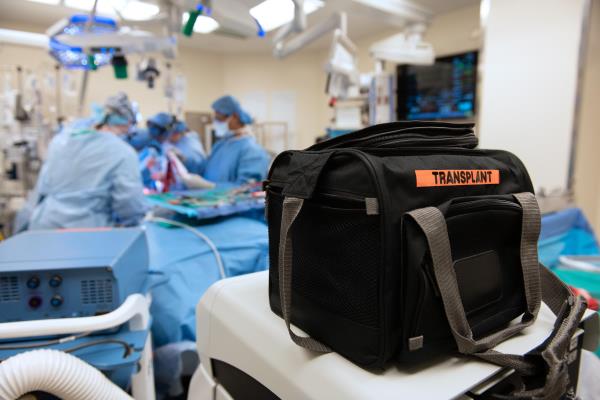Kidney Transplant Candidates
Who Is a Kidney Transplant Candidate?
You may be a candidate for a kidney transplant if your physician* has diagnosed you with kidney failure, or end-stage renal disease. This means your kidneys can no longer filter your blood properly. You may already be on dialysis.
If you are a good candidate for kidney transplantation, you will be registered with the United Network for Organ Sharing (UNOS) to find a donor kidney.
As a kidney candidate, you will get an individual estimated post-transplant survival (EPTS) score. This is a percentage score that ranges from 0 to 100 percent. The score is associated with how long you will likely need a transplanted kidney compared with other candidates. If you have an EPTS score of 20 percent, you are likely to need a kidney longer than 80 percent of other candidates. Someone with an EPTS score of 60 percent will likely need a kidney longer than 40 percent of other people. Your transplant team can calculate your EPTS score for you.
Your EPTS is calculated based on factors that affect how long you are likely to need a kidney, including:
- Your age
- Length of time spent on dialysis
- Whether you have received a previous transplant (of any organ)
- If you currently have diabetes
The donated kidneys also receive a score, called the kidney donor profile index (KDPI), based on the age and health of the donor. The 20 percent of kidneys that are expected to last the longest—those with a KDPI score of 20 percent or less—will first be offered to patients likely to need a transplant the longest—those with an EPTS of 20 percent or less.
Your transplant team* can discuss with you the best options for matching based on your EPTS score and the types of kidneys that would best meet your need.
The new kidney allocation system
In early December of 2014, the United Network for Organ Sharing (UNOS), the organization that manages the kidney transplant waiting list, began a new system of allocating (or giving) kidneys to candidates on the kidney transplant waiting list. The previous system had been in place for nearly 30 years and, while successful, there were ways it could be improved.
If you are already on the waiting list, you will continue to be on the list.
The goals of the new system include:
- Increasing the length of time a kidney will work in a recipient
- Shortening the waiting time for candidates who have had difficulty finding a kidney match due to uncommon blood types or have an immune system that makes it hard to match most kidneys
- Giving waiting time credit to those candidates who started dialysis before getting on the kidney transplant waiting list
- Providing more transplant opportunities, so that everyone has a better chance of being transplanted
The UNOS Questions and Answers for Transplant Candidates about Kidney Allocation brochure goes into greater detail about the kidney allocation system. Please read this brochure in English or Spanish to better understand how the new system works and how it may affect you.
If you have questions regarding the allocation system, please contact the UNOS Patient Services at 888.894.6361. UNOS Patient Services can provide information about UNOS, allocation policy and other resources available to you. As always, please feel free to contact your transplant nurse coordinator about your care.
Costs and Insurance
A transplant financial coordinator is here to guide you
The insurance and billing system is challenging to navigate alone. Our transplant financial coordinator is available to help walk you through the process, and answer any questions you may have.
The Organ Transplant Center at Northwestern Medicine works with many private insurance carriers, as well as Medicare and Medicaid, to provide transplant coverage to their members. We will assist you in obtaining pre‐authorization for transplant surgery and transplant‐related procedures.
To speak with the transplant financial coordinator, call 312.926.0072.
Explore our transplant resources. These include patient education materials, support groups and more.



